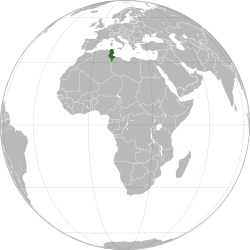Tunisia: Amazighs Face Islamist Harassment
By Magharebia
By Mawassi Lahcen
Threats from radical Islamists prevented Tunisian Amazigh associations from holding a conference in the country’s southern Matmata region.
Six Tunisian Amazigh groups planned their event, which aimed to unite the Tunisian Amazigh movement, to coincide with the 20th Tamezret Festival for Amazigh Culture on August 24th-25th.

But hard-line Islamists protested against the use of Tifinagh characters on the festival banners and demanded their removal, together with Amazigh flags.
They accused the Amazigh activists “of collaborating with foreign entities and of serving a Western, secular agenda hostile to the Islamic Arab identity of Tunisia”.
“We preferred to calm down the situation rather than be dragged to any acts that may harm our image and mission,” Nouri Nemri, a Tunisian Amazigh activist, told Magharebia. “In addition, we wanted to alleviate pressures on the organisers of the festival, which was a real success and attracted an audience that exceeded our expectations. Therefore, we decided to postpone the conference.”
As to the most important issues for the Tunisian Amazigh movement, Nemri said activists were focused on protecting their culture.
“We demand the state bear its responsibility in protecting, preserving and maintaining the Amazigh heritage and culture. We also confirm that the entity we’re seeking to create has a purely association, cultural nature,” he said.
Nemri said that the Tunisian Amazigh movement was not currently seeking official recognition of Tamazight in the constitution, despite the desires of some activists.
“However, let’s be realistic: Tamazight-speaking populations in Tunisia represent only 5% of the population, although the percentage of populations of Amazigh origins is much higher,” Nemri said. “We’re seeing what’s happening in neighbouring countries where there are many Tamazight-speaking people.”
He added that Tunisia’s Amazighs have been able to preserve their culture, habits, language and identity throughout history in spite of restrictions and hostility.
“We resisted the Ottomans, the French, the state of Bourguiba and the state of Ben Ali,” he said. “Today, there are the radical Islamists and nationalists who fight against the Tunisian identity. In spite of all this, we’ve been able to protect and preserve our identity.”
Prior to the revolution, Nemri said that “Amazigh culture had been restricted to tourist consumption. Other than that, it was banned.”
The first attempts to form Amazigh cultural associations date back to the 1980s but were strongly opposed by the former regime, he said.
“After the revolution, many Amazigh associations were formed,” he added. “Today, we’re trying to unite their efforts and co-ordinate their work. However, they are met with hostility by Islamists and nationalists.”
Despite the threats, the 20th round of the Tamezret Festival for Amazigh Culture was a great success, according to organisers. More than 5,000 people, including Amazighs from Libya and Algeria, attended the event.
Lassad Labouz, the president of the Tamezret Association for the Protection of Heritage, said that the festival programme including seminars on the Tamazight language and culture
Tunisian Amazigh musician Lazhar Bin Ouirane also performed with a Libyan band. The event wrapped up with Tunisian Amazigh artist Zohra Lajnef.
